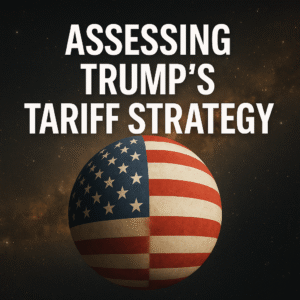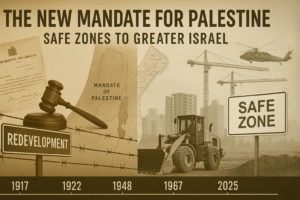Geopolitical Briefing: Lebanon – 22 August 2025
Bullet Points (Past 7 Days):
- Lebanon begins disarmament of Palestinian factions in refugee camps, notably in Burj al‑Barajneh and al‑Bass. Hamas and Islamic Jihad do not fully participate, framing it as an internal Fatah initiative.
- UN Security Council debates extension of UNIFIL’s mandate; France proposes conditional withdrawal if the Lebanese government assumes full southern border control.
- Lebanese government mandates the army to craft a plan to disarm Hezbollah by end of year; Hezbollah rejects the move, warning of missile retaliation if provoked.
- U.S. envoy urges Israel to comply with Lebanon’s disarmament roadmap—linking Hezbollah’s disarmament to cessation of Israeli military activity in south Lebanon.
- U.S. pushes to end UNIFIL mission; Europe resists, warning that a premature withdrawal could leave a security vacuum the Lebanese army cannot fill.
Analytical Commentary (Realist Framework)
1. Palestinian Camp Disarmament
Lebanon’s decision to initiate the disarmament of Palestinian factions from camps in Beirut, especially Burj al‑Barajneh and al‑Bass, marks a symbolic yet strategic gesture toward reinforcing state monopoly over arms (AP News, Reuters, AP News, Reuters, AP News, Reuters). Though limited—since only "illegal" weapons seem to be accepted, and Hamas along with Islamic Jihad dissociate (AP News)—this move serves as a preparatory rehearsal for tackling more contentious Hezbollah disarmament. It aligns with Security Independence and Territorial Sovereignty, but its incomplete implementation underscores persistent fragmentation in Lebanon’s capacity to unify armed groups under state control.
2. UNIFIL's Mandate in Limbo
The UN Security Council deliberations on UNIFIL’s extension, with France advocating conditional withdrawal contingent on Lebanese state readiness, reflects international pressure to recalibrate Lebanon’s security apparatus (AP News, Reuters). The proposal accentuates the stretched nature of Independence from External Political Control—as reliance shifts to the Lebanese Armed Forces—but UNIFIL’s potential exit risks a security vacuum that may embolden Hezbollah and undermine state authority over the south.
3. Hezbollah Disarmament Roadmap
The Lebanese government’s order for the army to design a Hezbollah disarmament plan by year-end is a key escalation in asserting state authority (AP News). Yet Hezbollah’s immediate rejection—framing it as existential—and threats of missile retaliation if provoked highlight the asymmetry in power dynamics (The Guardian). This intensifies the central tension: Balancing Hezbollah’s Military Power with State Authority remains fraught, with the threat of internal conflict growing if coercive measures are pursued without room for concession.
4. U.S. Urges Israeli Compliance
The U.S. envoy’s call for Israel to adhere to Lebanon’s disarmament timetable—and to halt military operations in the south—ties peaceful detachment of Hezbollah to Israeli restraint (Reuters). This highlights a synchronized approach: Lebanon gains space to build Muslim Unity through regional alignment, and Independence from External Political Control via opening diplomatic levers, but only if Israel reciprocates with de-escalation.
5. Debate Over UNIFIL’s Continuation
U.S. demands to terminate UNIFIL contrast with European advocacy for its retention, raising the question of whether Lebanon’s army is capable of securing southern borders amidst the Hezbollah challenge (AP News). The struggle reflects a clash between pushing for Security Independence and the realities of Territorial Sovereignty—the state may lack capacity absent UN support, giving Hezbollah strategic leverage as both a deterrent and a domestic power broker.


